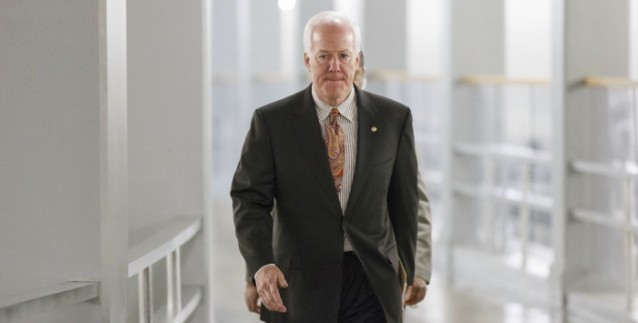"This Bill Is Dubbed The HUMANE Act, But It Actually Hurts The Migrant Kids It Claims To Protect"

CREDIT: AP
The Obama administration returned its first group of migrant children back to Honduras this week, but some lawmakers are spearheading legislation that would make deportation efforts occur more frequently.
In response to President Obama’s $3.7 billion emergency funding request, two Texas lawmakers Sen. John Cornyn (R-TX) and Rep. Henry Cuellar (D-TX) are pushing the Helping Unaccompanied Minors and Alleviating National Emergency (HUMANE) Act to make the federal government deport Central American children just as quickly as they already do with Mexican children.
In practice, children from contiguous countries (i.e. Mexico and Canada) are currently returned to their home countries almost immediately. Children from nations other than Mexico and Canada are handed over to the Department of Health and Human Services (HHS) to be screened and housed while waiting for their court hearing.
Cornyn and Cuellar claim that criminal cartels are exploiting the trafficking law known as the William Wilberforce Trafficking Victims Protection Reauthorization Act (TVPRA) of 2008 so their proposal seeks to expedite the deportation process for both sets of children. On Tuesday, Cornyn said in a joint MSNBC interview with Cuellar, “They’ve figured out this gap in this 2008 law which allows children to basically be released to family members in the United States and be served with a notice to appear. It won’t surprise you that most of them don’t show back up.”
Despite their claim, their proposal misses the point and fails to address the current system, which is failing Mexican children. Border Patrol agents — not immigration judges — make the initial determination about whether Mexican children can stay in the United States based on whether the child will be afraid of returning to his home country; whether the child is a human trafficking victim or may become a victim in their home country; and whether the child understands the implications of returning to Mexico. If they conclude that the child is not eligible for legal protection, the border patrol agents offer them the chance to voluntarily return home. In practice, border patrol agents are not qualified to adequately screen these kids for these various forms of relief and their “offer” to voluntarily return home often amounts to coercion.
Children don’t always understand the process and are frequently unable to articulate their fear within the 48 hours Border Patrol agents have to do this screening. As Vox highlighted, one teenage girl told a border agent that she was afraid of being forced into prostitution only after her paperwork had been filed. According to a June 2014 UN Office of the High Commissioner for Refugees report obtained by Vox, the Custom and Border Protection (CBP) agency’s “style of interviewing Mexican unaccompanied alien children seemed to focus on producing quick answers rather than substantive ones.”
Under the Cornyn-Cuellar proposal, immigration judges would have to adjudicate cases within seven days after border agents turn children over the Department of Health and Human Services (HHS), adding to the current immigration court backlog of about 375,000 deportation cases. This rocket docket would make access to counsel virtually impossible and prioritize speed over accuracy in assessing the viability of these kids’ claims for protection. Sen. Harry Reid (D-NV) called the Cornyn-Cuellar proposal “too broad” and that “the answer from me is: No, I won’t support it.”
America’s Voice, an immigration advocacy group, said that the Cornyn-Cuellar proposal was actually “inhumane” because it would offer “an accelerated deportation process for children and a wholesale expansion of border enforcement that treats a humanitarian crisis as an opportunity to escalate activity on the already militarized border.” In his time as senator, Cornyn has consistently stood against “humane” efforts to deal with the country’s undocumented population. As far back as 2006, he proposed so-called poison pill amendments to an immigration reform bill and voted against it. He voted against another immigration bill in 2007. In 2010, he voted against the federal DREAM Act, which would have provided an eventual pathway to citizenship for some undocumented immigrants.
Rep. Luis Gutierrez said in a press release, “Senator Cornyn has led the opposition to every single immigration reform proposal he has ever seen and he is exploiting children, wrapping himself in a thin blanket of feigned compassion, and he has gotten a Democrat to stand with him. This is not the middle ground, this is the deportation-only agenda dressed up in sheep’s clothing. More of the same is not a solution.”
But Gutierrez also criticized Cuellar saying last week that he is “a friend and a colleague of ours,” but that “we disagree with him” on the best way to handle the unaccompanied children crisis.







 FRONT
FRONT